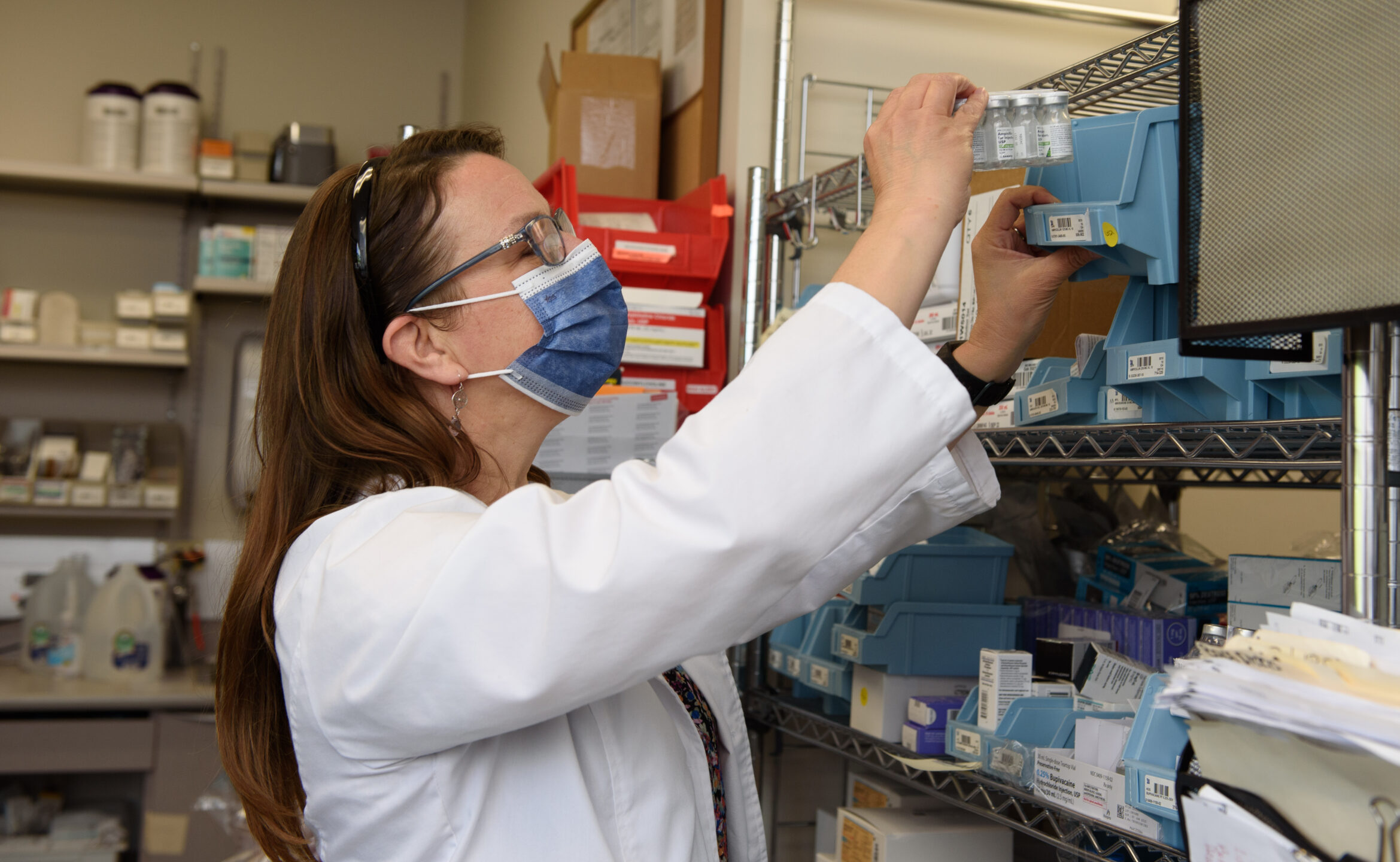Access your own patient portal, provided by NCSH.
Urology
“Can Stress Cause a UTI?” And Other Commonly Asked Questions About UTI Causes
Mon, Mar 27, 2023

Urinary tract infections, or UTIs, are common and often painful. But what exactly causes a UTI? How can you reduce your risk of getting one?
UTIs can be caused by a variety of factors, including diet, dehydration, and sexual activity, among other variables. Even lifestyle components such as stress levels may contribute to the chances of developing a UTI. Know the risk factors and causes to prevent this painful infection.
What is a UTI?
 A urinary tract infection (previously called a bladder infection) is an infection that occurs in any part of the urinary system, including the kidneys, ureters, bladder, and urethra. UTIs result from bacteria entering the urinary tract and multiplying.
A urinary tract infection (previously called a bladder infection) is an infection that occurs in any part of the urinary system, including the kidneys, ureters, bladder, and urethra. UTIs result from bacteria entering the urinary tract and multiplying.
Common symptoms of a UTI include:
- Burning sensation when urinating
- Strong, persistent urge to urinate
- Small amounts of urine, despite the urge to go
- Lower abdominal pain or pelvic discomfort
- Cloudy, dark, bloody, or strange-smelling urine
If you have these symptoms, it’s important to see your doctor or a urology specialist for diagnosis and treatment options. Left untreated, a UTI can become severe and even cause kidney damage or sepsis.
What Causes UTIs?
UTIs are caused by bacteria entering the urinary tract and multiplying. The most common cause of UTIs is Escherichia coli (E. coli), a type of bacteria found in the digestive system. Additional causes include other types of bacteria, fungi, and viruses.
There are many ways bacteria can enter the urethra, which leads to the bladder. This doesn’t always cause an infection, though. You might be more likely to develop a UTI if your immune system is compromised or you have specific health conditions.
Lifestyle factors can also increase the risk of developing a UTI. These are some of the common questions people have when facing an infection.
Can Stress Cause a UTI?
Stress alone does not cause a UTI. However, chronic stress can weaken the immune system, making it more difficult for your body to fight off bacteria that enter the urinary tract. This increases your risk of developing a UTI.
Additionally, stress can lead to changes in your urinary habits, such as holding urine for too long or not drinking enough fluids, which can also increase the risk of infection.
Can Sex Cause a UTI?
Yes, sex can cause a UTI. During sexual intercourse, bacteria from the rectum or vagina can be pushed into the urethra, leading to an infection.
Women are more likely to develop a UTI after sex because their urethras are shorter than men’s, making it easier for bacteria to enter the bladder.
Can Birth Control Cause a UTI?
Birth control pills do not increase the risk of developing a UTI. However, other types of birth control, like diaphragms, can make it easier for bacteria to enter the urethra. Spermicide can also increase the risk of infection by changing the natural bacterial ecosystem in the vagina and around the urethra.
Can Alcohol Cause a UTI?
Alcohol can increase the risk of developing a UTI. Alcohol is a diuretic, meaning it increases urine production and decreases the amount of water in the body. This can lead to dehydration, which can make it harder for your body to flush out bacteria from the urinary tract.
Additionally, alcohol can irritate the lining of the bladder and urethra, making it easier for bacteria to enter and cause an infection.
Can You Get a UTI from Not Drinking Enough Water?
Yes, not drinking enough water can increase your risk of developing a UTI. When you don’t drink enough fluids, your urine becomes more concentrated and acidic. This creates an environment in which bacteria can grow and spread in the urinary tract.
When you don’t drink enough water, your body is unable to flush out bacteria as effectively, which increases the risk of infection.
Can You Get a UTI from Fingers?
Yes, you can get a UTI from your fingers. Bacteria from your hands can enter the urethra when touching this area of the body. This is especially true if your hands are not clean.
Can Too Little Sleep Cause a UTI?
Too little sleep can increase the risk of developing a UTI. Lack of sleep can weaken the immune system, making it harder for your body to fight off bacteria that enter the urinary tract.
Not getting enough sleep can also lead to changes in your urinary habits, such as holding urine for too long or not drinking enough fluids, which can also increase the risk of infection.
Reducing Your Risk for a UTI
Reducing your risk of developing a UTI is important for maintaining good urinary health. Here are some tips to help reduce your risk:
- Drink plenty of water throughout the day to keep your urine diluted and flush out bacteria from the urinary tract.
- Empty your bladder completely after urinating.
- Wipe from front to back after using the bathroom to prevent bacteria from entering the urethra.
- Avoid using scented soaps, bubble baths, and other products that can irritate the urethra.
- Wear cotton underwear and loose-fitting clothing to keep the area around your urethra dry.
- Urinate before and after sexual intercourse to flush out bacteria from the urinary tract.
Leaving a UTI untreated is not just painful; it can also cause serious health complications. It’s important to recognize the signs, seek treatment, and take steps to prevent infections. Learn more about UTIs and urinary health from our urology department.
RELATED NEWS

What Helps Pass Kidney Stones? Get the Facts
Every year, more than half a million people go to emergency rooms because of kidney stone problems and pain. And it’s estimated that one in 10 people will experience a kidney stone in their lifetime….
Continue Reading

How to Pass a Kidney Stone
Most everyone who has experienced a kidney stone will agree that the stones—or more accurately, the experience of passing them—can be excruciatingly painful. Many patients even equate the discomfort with childbirth. The intense pain caused…
Continue Reading
Stay Current
Educational Articles & More
View News & Press